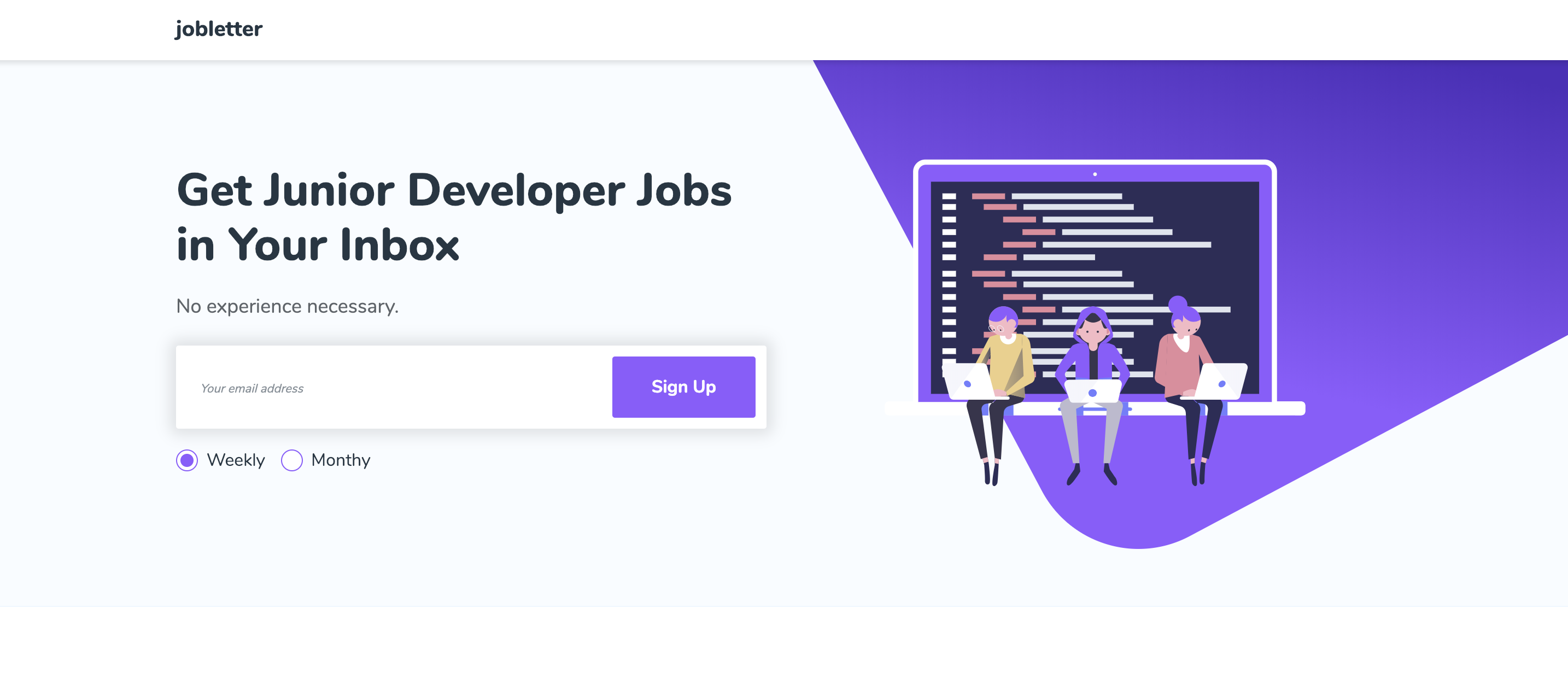Landing your first “Software Developer” or “Web Developer” position is a big get. More than a designer-who-programs or a writer-who-markups, taking on a role where your principal responsibility is coding is a big step in any technology career.
You could be thinking about a career transition or graduating a bootcamp or computer science program - this article has five tips, some less earth-shattering than others, that nevertheless will help you on your search. They come from being on both sides of the hiring table, after breaking in through outside the university system.
1. Spend time on job boards, but not that much time.
After you’ve polished your resume, you’ll be tempted to try and get some mileage out of it, including by submitting it to every possible relevant job listing you can find. Job boards can be dangerous time sinks though, inviting you to play the numbers game at the expense of developing professional connections or building projects that will directly make you more desirable as a candidate. If you’re finding yourself spinning your wheels on a job board, try going to an in-person meetup instead.
2. Github helps, but take it beyond toys. Real projects have stakeholders.
Having some sort of public code profile is essential if you don’t have experience programming professionally. Coding exercises, toy programs (built to demonstrate an idea or theory, but not sustain real use), and small utilities (web scrapers, personal notification systems, etc) are all helpful, but building something for another user or group shows you can translate real requirements into a usable app. It doesn’t have to be a side business (though how cool!) it could be pro-bono work for a community organization, helping out a business-minded friend, or something else. But by gathering requirements you can later talk to prospective employers about how you worked to satisfy those (sometimes ambiguous) needs through technical decision making. That’s enormous.
3. Be a good - and communicative - alumnus.
If you’re graduating a bootcamp or university program - something where you worked alongside a cohort of peers - stay in touch with those peers. You’ll fall out of touch with them, invariably (Hey Makersquare, second cohort!) but swapping strategies, tools, and leads with them will only make you both stronger. If they’re in a position to help you in the future with a recommendation that’s wonderful, but even just being in the job search trenches together will help.
4. Read coding interview books.
Regardless of whether your backend or frontend, coding in a static or compiled language, a degreed analyst or a hacker savant, you’re going to be asked a mixture of questions by a rotating cast of interviewers that will probably have nothing to do with your day-to-day. Know the most common interview “gotchas” for each language, be able to talk at a high level about trends in your area, and go through the books as much as you can, rehearsing (but not memorizing) the general contours of your responses, to make this sort of patter seem natural.
5. Take notes during interviews.
Show your interviewers that you’re actually synthesizing what they’re telling you. Use the notes to ask informed, specific follow-ups during the relevant interview portion. Don’t write down anything snarky or personal (just in case the can see it) and don’t write anything that could violate an NDA, but do take notes that can help you in the current interview and beyond.
This is a random grab bag of tips I’ve found important to the junior developer interview process.
If you’re just itching to try out some of these notes on a new opportunity, I recently started a newsletter full of jobs for junior devs.
Check it out at jobletter.io or sign up for updates below.

